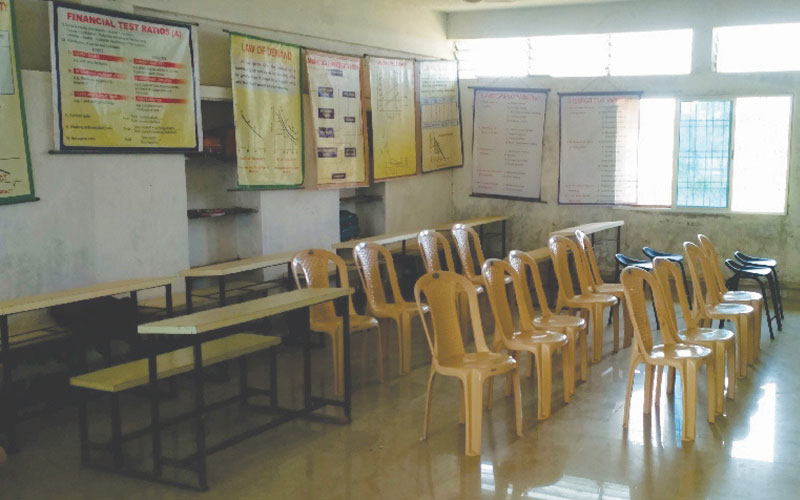Agricultural economics is an applied field of economics concerned with the application of economic theory in optimizing the production and distribution of food and fiber. Agricultural economics began as a branch of economics that specifically dealt with land usage, it focused on maximizing the crop yield while maintaining a good soil ecosystem. Throughout the 20th century the discipline expanded and the current scope of the discipline is much broader. Agricultural economics today includes a variety of applied areas, having considerable overlap with conventional economics. MPCA Hiratola has well-furnished Agriculture Economics lab that is use to provide a congenial environment for the training of highly qualified and enterprising agricultural economists, agricultural administrators and agribusiness practitioners for the purpose of training/teaching, research and extension.
Economic laboratory can be used to study the strategic economic decision making through developing a combination of economics theory, game theory, behavioural economics, laboratory experiments and research survey and also gives the updated database of national survey.

This laboratory is used for research in following areas:
List of equipment in the Lab:
| Sr No | Name of Equipment |
| 1 | Computers |
| 2 | Cameras |
| 3 | Software |